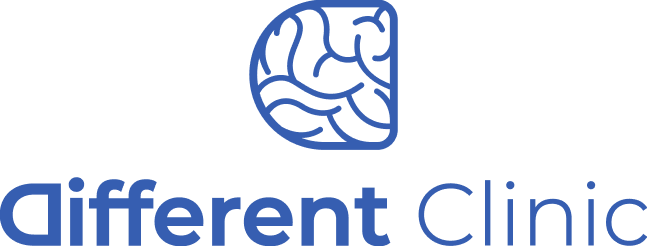In the evolving landscape of mental health treatments, ketamine and psilocybin therapies have gained significant attention as innovative options for conditions like treatment-resistant depression, anxiety, and PTSD.
Both draw from the realm of dissociative and psychedelic substances, yet they differ markedly in their mechanisms, delivery, and crucially their costs and accessibility. For many seeking relief in Canada, particularly in urban centers like Toronto, understanding these differences is essential for making informed decisions.
This article provides a practical comparison of ketamine vs. psilocybin therapy, focusing on real-world costs, availability, and barriers to access as of 2025. Drawing from current clinic data and regulatory insights, we’ll break down pricing structures, insurance considerations, and actionable strategies to navigate affordability. Whether you’re exploring options for yourself or a loved one, this guide aims to clarify which therapy might fit your budget and circumstances.
Understanding Ketamine Therapy: Costs and Accessibility in 2025
Ketamine therapy, often administered as intravenous (IV) infusions or nasal sprays, has become a go-to treatment for rapid symptom relief in mental health care. Approved for certain uses in Canada, it’s widely available through specialized clinics, making it one of the more accessible psychedelic-inspired therapies.
Pricing Breakdown for Ketamine Therapy
The cost of ketamine therapy varies based on the administration method, session frequency, and location. In Toronto and across Canada, expect the following ranges based on 2025 clinic offerings:
- Per-Session Costs: IV infusions typically range from $375 to $850 per session. For instance, clinics like Toronto Ketamine Clinic charge around $450 for a standard infusion, while others, such as Homewood Health Centre in Ontario, price them at approximately $700. Nasal spray options (e.g., esketamine/Spravato) are slightly lower, starting at $250–$800 per dose, due to easier administration.
- Full Treatment Course: A standard protocol involves 6–8 initial sessions over 3–4 weeks, totaling $2,250 to $6,800. Comprehensive programs, including pre- and post-session psychotherapy (ketamine-assisted psychotherapy or KAP), can push costs to $4,500 or more, as seen at facilities like Field Trip Health.
- Additional Fees: Initial consultations often cost $200–$500, and maintenance sessions (every 1–3 months) add $375–$850 each. Travel or parking in Toronto can tack on minor extras, but many clinics offer virtual prep sessions to minimize this.
Accessibility Factors for Ketamine
Ketamine’s legal status as a Schedule I controlled substance doesn’t hinder its therapeutic use, as it’s prescribed off-label for mental health under medical supervision. In Canada, it’s readily available at over 20 clinics in Toronto alone, with no special exemptions required. Wait times are short often 1–2 weeks for an initial appointment and it’s accessible via public transit in areas like Midtown Toronto.
Insurance coverage is a key advantage: Some private plans (e.g., through employers or extended health benefits) reimburse 50–80% for esketamine (Spravato), especially if prescribed for depression. However, OHIP (Ontario Health Insurance Plan) does not cover it for mood disorders, leaving it largely out-of-pocket for many. Telehealth options for follow-ups are expanding, improving access for rural Canadians.
Exploring Psilocybin Therapy: Costs and Accessibility in 2025
Psilocybin therapy, derived from “magic mushrooms,” involves guided sessions with the psychedelic compound to facilitate profound insights and emotional processing. While promising for depression and end-of-life anxiety, its accessibility remains limited due to regulatory hurdles in Canada.
Pricing Breakdown for Psilocybin Therapy
Psilocybin sessions are generally more expensive and less standardized than ketamine, reflecting their experimental status and intensive preparation. Current 2025 estimates for Toronto and Canada include:
- Per-Session Costs: A single guided session can range from $2,000 to $3,000, covering the psilocybin dose, therapist facilitation, and integration support. For example, nonprofit programs like TheraPsil charge a $1,000 intake fee plus session costs, while private clinics may exceed $2,500 per experience.
- Full Treatment Course: Protocols often require 1–3 sessions spaced weeks apart, totaling $3,000–$9,000 or more. Group therapy options, like those offered by RVN Wellness in Toronto (next in October 2025), can reduce costs to $1,500–$2,500 per participant, but individual therapy remains pricier.
- Additional Fees: Preparation and integration psychotherapy add $150–$265 per hour, potentially doubling the overall expense. Sourcing legal psilocybin (via exemptions) incurs further administrative costs, around $500–$1,000 for approvals.
Accessibility Factors for Psilocybin
Psilocybin is classified as a Schedule III substance under Canada’s Controlled Drugs and Substances Act, but access has improved through Health Canada’s Special Access Program (SAP) and Section 56 exemptions. In 2025, Toronto sees expanded options at about 5–10 specialized centers, including trials and compassionate use programs. However, eligibility is strict requiring a doctor’s referral and proof of treatment resistance leading to wait times of 4–12 weeks.
Insurance coverage is virtually nonexistent; all costs are out-of-pocket, as psilocybin lacks formal approval for therapeutic use. Rural access is challenging, though some clinics offer virtual integration sessions. Emerging group models and nonprofit initiatives, like those from TheraPsil, are making it slightly more reachable, but it’s far from mainstream.
Ketamine vs. Psilocybin: A Head-to-Head Comparison
When weighing ketamine vs. psilocybin therapy for affordability and accessibility, ketamine emerges as the clear winner for most Canadians in 2025. Here’s a detailed side-by-side analysis:
Cost Comparison
- Upfront Investment: Ketamine’s per-session price ($375–$850) is 40–70% lower than psilocybin’s ($2,000–$3,000), making it easier to start without a massive commitment.
- Total Course Expense: A full ketamine series ($2,250–$6,800) is comparable to or less than psilocybin’s ($3,000–$9,000), especially when factoring in psilocybin’s higher integration fees.
- Ongoing Maintenance: Both require boosters, but ketamine’s ($375–$850 every few months) are more budget-friendly than psilocybin’s infrequent but costly sessions.
- Hidden Costs: Psilocybin often involves exemption applications ($500+), while ketamine may qualify for partial insurance reimbursements, saving 20–50% for eligible patients.
In Toronto, ketamine clinics like Toronto Ketamine Clinic offer packages under $5,000, whereas psilocybin access through TheraPsil or similar can exceed $4,000 for a basic course.
Accessibility Comparison
- Legal and Regulatory Ease: Ketamine is legally prescribed off-label with minimal barriers, available at dozens of clinics nationwide. Psilocybin requires SAP approvals or exemptions, limiting it to research or compassionate cases only about 100–200 patients annually in Ontario.
- Geographic Reach: Ketamine is offered in major cities like Toronto, Vancouver, and Montreal, with some telehealth elements. Psilocybin is concentrated in urban trial sites, with fewer options outside research hubs.
- Wait Times and Eligibility: Ketamine appointments are quick (1–2 weeks), open to most with a referral. Psilocybin demands rigorous vetting (4–12 weeks), excluding those without severe, documented treatment resistance.
- Provider Availability: Over 20 ketamine providers in Toronto vs. 5–10 for psilocybin, often tied to nonprofits or trials.
Overall, ketamine’s established infrastructure makes it far more accessible, while psilocybin’s novelty restricts it to a niche group.
| Aspect | Ketamine Therapy | Psilocybin Therapy |
|---|---|---|
| Per Session Cost | $375–$850 | $2,000–$3,000 |
| Full Course Cost | $2,250–$6,800 | $3,000–$9,000 |
| Insurance Coverage | Partial (private plans) | None (out-of-pocket only) |
| Availability in Toronto | High (20+ clinics) | Low (5–10 specialized sites) |
| Wait Time | 1–2 weeks | 4–12 weeks |
| Legal Access | Off-label prescription | Special exemptions/trials |
Practical Tips: Finding Affordable and Accessible Options
Navigating the costs of ketamine vs. psilocybin therapy doesn’t have to be overwhelming. Here are actionable strategies to make these treatments more attainable in 2025:
- Shop Around for Clinics: In Toronto, compare quotes from multiple providers. For ketamine, contact Toronto Ketamine Clinic or Field Trip Health for bundled packages that include multiple sessions at a discount (up to 20% off). For psilocybin, nonprofits like TheraPsil offer sliding-scale fees based on income.
- Leverage Insurance and Reimbursements: Check your extended health plan ketamine (especially esketamine) may be covered up to 80% for depression. Psilocybin isn’t insurable yet, but some plans reimburse related psychotherapy. Use tools like Benefits Canada’s coverage checker or consult your provider.
- Explore Payment Plans and Financing: Many ketamine clinics, such as those affiliated with Field Trip Health, offer 0% interest financing through partners like Medicard (spread over 6–24 months). For psilocybin, inquire about installment options with nonprofits TheraPsil allows phased payments after the intake fee.
- Opt for Group or Trial Programs: Psilocybin group sessions (e.g., RVN Wellness’s October 2025 program) can cut costs by 30–50%. Ketamine trials at universities like the University of Toronto occasionally provide low- or no-cost access for eligible participants.
- Seek Financial Assistance: Apply for grants through organizations like the Canadian Mental Health Association or crowdsource via GoFundMe for psilocybin exemptions. For ketamine, low-income clinics in Ontario may offer subsidized rates.
- Combine with Free Resources: Pair therapy with free integration tools, like apps from the Multidisciplinary Association for Psychedelic Studies (MAPS), to reduce add-on costs.
By starting with a consultation (often free for ketamine), you can tailor a plan to your budget. In Toronto, clinics like Different Clinic provide expert guidance on both options, helping bridge the gap between cost and care.
Challenges and Considerations in 2025
While ketamine edges out in affordability and access, both therapies face hurdles. Ketamine’s side effects (e.g., dissociation) require medical oversight, and long-term data is still emerging. Psilocybin’s higher price and regulatory red tape make it less viable for many, though 2025 policy shifts such as expanded SAP approvals could improve this.
Ethical concerns, like equitable access for underserved communities, remain. Always consult a healthcare professional to ensure suitability, as neither is a one-size-fits-all solution.
Conclusion: Choosing Between Ketamine and Psilocybin Therapy
In the debate of ketamine vs. psilocybin therapy, ketamine stands out as the more affordable and accessible choice in 2025, with lower per-session costs ($375–$850 vs. $2,000–$3,000) and broader availability across Canada. Psilocybin offers profound, potentially longer-lasting insights but at a steeper financial and logistical price, often limited to specialized exemptions.
Ultimately, the “better” option depends on your condition, budget, and location. For those in Toronto facing treatment-resistant issues, starting with ketamine may provide quicker, more budget-friendly relief. As research advances, both therapies promise to reshape mental health care making it more inclusive and effective.
Ready to explore your options? Contact Different Clinic in Toronto at +1 647 325-9647 or visit their website to schedule a consultation and discuss personalized, affordable paths forward.







Leave a Reply